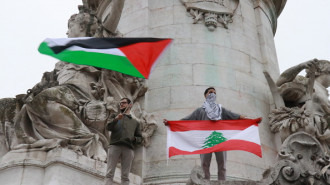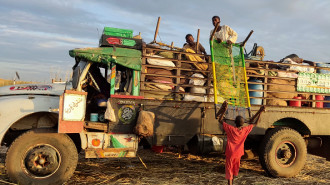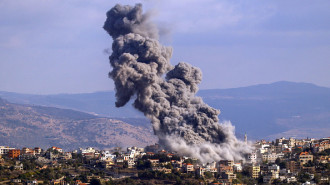Follow us on Facebook, Twitter and Instagram to stay connected
Iran finds way around Supreme Leader's ban on UK, US Covid vaccines with Swedish import
Iran finds way around Supreme Leader's ban on UK, US Covid vaccines with Swedish import
Iran has reportedly found 'a way around' an official ban on US and British-made Covid-19 vaccines.
3 min read
Iran banned US and British Covid-19 vaccines [Getty]
Iran could be importing coronavirus vaccines including the AstraZeneca sourced in the UK, the country's top epidemiologist said, in a way around a ban on UK and US vaccines by the leadership.
"The ministry of health is pursuing imports of the AstraZeneca vaccine from Sweden," the state-run Islamic Republic News Agency quoted Minoo Mohraz, a member of the country’s coronavirus taskforce said.
The coveted vaccines could arrive in the country in weeks, Mohraz reportedly said.
Critics noted that Mohraz described the AstraZeneca vaccine as a "Swedish company", in what appears to be an attempt at minimising the connection with the UK following the 8 January ban.
Earlier this month Supreme Leader Ali Khamenei invited controversy after he claimed that vaccines made in the US and UK are "completely untrustworthy".
Khamenei tweeted: "Importing vaccines made in the US or the UK is prohibited. They're completely untrustworthy. It's not unlikely they would want to contaminate other nations."
"Given our experience with France's HIV-tainted blood supplies, French vaccines aren't trustworthy either," he added with the hashtag #CoronaVaccine.
Twitter removed the tweet and replaced it with a message that said it was "no longer available because it violated the Twitter Rules".
The comment was rubbished by health experts who said that vaccines are the best way to battle the pandemic.
Reacting to Tehran's policy, the heads of the three branches of Iran’s Medical Council and the chairman of the Assembly of Scientific Associations appealed in an open letter to President Hassan Rouhani to ensure the vaccines are distributed immediately.
"As representatives of the medical community of the country, we strongly urge you to direct all efforts of the esteemed government to provide a safe and approved vaccine through scientific authorities in order to ensure the natural rights of the people and the expectations of the medical staff are met, using all the capacities of the public and private sectors and divorced from political issues," the letter said, according to Iran Wire.
Testing other vaccines
Iran began testing its own vaccine on humans in December and the product is expected to hit the local market in spring.
Iran's Revolutionary Guard in December rejected the use of foreign-made vaccines altogether.
Gen. Mohammad Reza Naghdi said the Guard "does not recommend the injection of any foreign vaccine" candidates based on genetic material known as messenger RNA, which carries the instructions for cells to make proteins.
Authorities said then that US-based benefactors plan to deploy scores of thousands of Pfizer-BioNTech coronavirus to Iran.
Iran retains routes to vaccines despite sanctions, including through its participation in the WHO's COVAX programme, to ensure middle and low-income countries have access to vaccines.
International banks and financial institutions are reluctant to deal with Iran for fear of American penalties.
The coveted vaccines could arrive in the country in weeks, Mohraz reportedly said.
Critics noted that Mohraz described the AstraZeneca vaccine as a "Swedish company", in what appears to be an attempt at minimising the connection with the UK following the 8 January ban.
Earlier this month Supreme Leader Ali Khamenei invited controversy after he claimed that vaccines made in the US and UK are "completely untrustworthy".
Khamenei tweeted: "Importing vaccines made in the US or the UK is prohibited. They're completely untrustworthy. It's not unlikely they would want to contaminate other nations."
"Given our experience with France's HIV-tainted blood supplies, French vaccines aren't trustworthy either," he added with the hashtag #CoronaVaccine.
Twitter removed the tweet and replaced it with a message that said it was "no longer available because it violated the Twitter Rules".
The comment was rubbished by health experts who said that vaccines are the best way to battle the pandemic.
|
Reacting to Tehran's policy, the heads of the three branches of Iran’s Medical Council and the chairman of the Assembly of Scientific Associations appealed in an open letter to President Hassan Rouhani to ensure the vaccines are distributed immediately.
"As representatives of the medical community of the country, we strongly urge you to direct all efforts of the esteemed government to provide a safe and approved vaccine through scientific authorities in order to ensure the natural rights of the people and the expectations of the medical staff are met, using all the capacities of the public and private sectors and divorced from political issues," the letter said, according to Iran Wire.
Testing other vaccines
Iran began testing its own vaccine on humans in December and the product is expected to hit the local market in spring.
Iran's Revolutionary Guard in December rejected the use of foreign-made vaccines altogether.
Gen. Mohammad Reza Naghdi said the Guard "does not recommend the injection of any foreign vaccine" candidates based on genetic material known as messenger RNA, which carries the instructions for cells to make proteins.
Authorities said then that US-based benefactors plan to deploy scores of thousands of Pfizer-BioNTech coronavirus to Iran.
Iran retains routes to vaccines despite sanctions, including through its participation in the WHO's COVAX programme, to ensure middle and low-income countries have access to vaccines.
International banks and financial institutions are reluctant to deal with Iran for fear of American penalties.

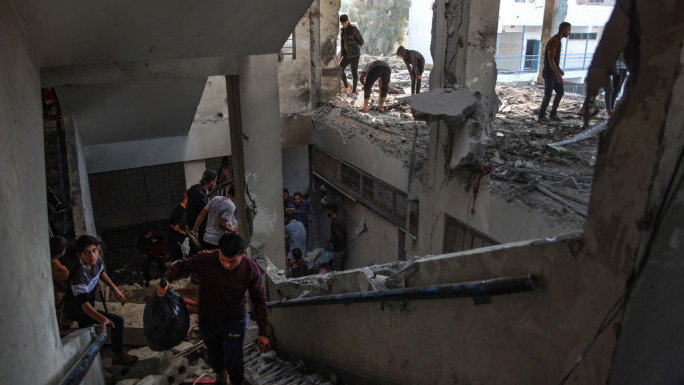
![President Pezeshkian has denounced Israel's attacks on Lebanon [Getty]](/sites/default/files/styles/image_684x385/public/2173482924.jpeg?h=a5f2f23a&itok=q3evVtko)

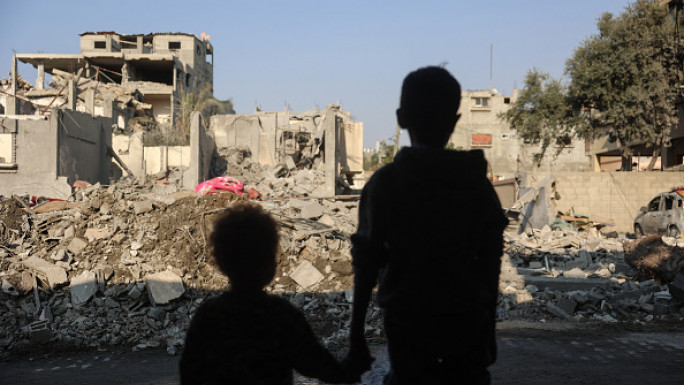
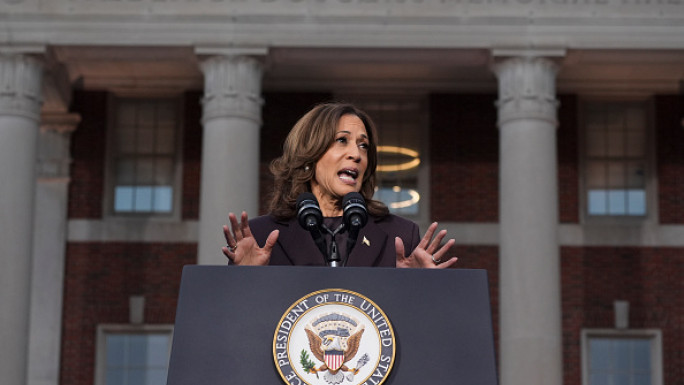
 Follow the Middle East's top stories in English at The New Arab on Google News
Follow the Middle East's top stories in English at The New Arab on Google News
